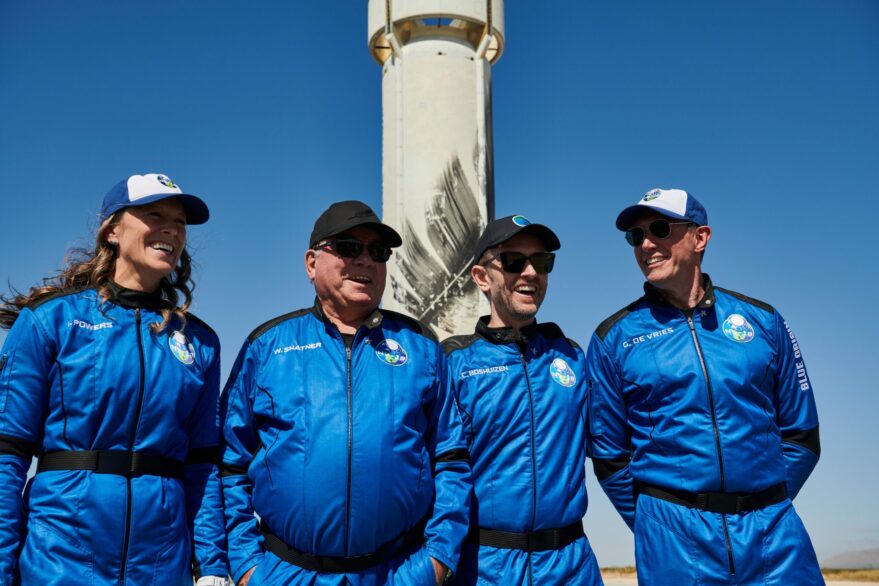The race for a place in space is one of the many things people love about the spirit of the United States — a country that dreams big, sets goals to make those dreams a reality, and then moves full speed ahead to achieve those goals.
America blasts off toward those dreams with stars in its eyes. These days, the blast-off is literal — a burst of private spaceflight companies putting novice pilots and tourists closer to the stars.
U.S. space policy experts are as excited as everyone else about the new door opening for space travel. Yet, they also fear the consequences of a regulatory environment that lacks consistency, bows to expediency and publicity, and jeopardizes the steady, safe development of enjoying and enhancing this new horizon.
While The Federal Aviation Administration normally has authority to regulate commercial launches through its Office of Commercial Space Transportation, Congress imposed a moratorium on the FAA regulating the commercial human spaceflight industry until Oct. 1, 2023.
Under the current system, the FAA has a conflicted role — simultaneously charged with promoting commercial spaceflight and providing guidance and preventing situations that severely put the public in harm’s way. Beyond that, the FAA lacks the authority to create specialized safety standards in human spaceflight. The result has been a wild west where those with the financial means to build are allowed to essentially do as they please, creating their own rules as they go.
In September, the FAA grounded Virgin Galactic after finding that its maiden tourism flight “deviated from its Air Traffic Control clearance as it returned to Spaceport America.” As CNN reported, “the FAA’s statement came not long after [T]he New Yorker‘s Nicholas Schmidle reported that warning lights had shown up on the dashboard of Virgin Galactic’s SpaceShipTwo — signaling that the vehicle was on a wayward trajectory.”
Schmidle’s 2021 book “Test Gods: Virgin Galactic and the Making of a Modern Astronaut” also revealed publicly for the first time that in a 2019 test flight Virgin Galactic touted as a tremendous success, the structural integrity of the spaceship’s stabilizer was compromised by a pressure seal that had come loose. Virgin’s vice president for safety was later quoted as saying, “I don’t know how we didn’t lose the vehicle and kill three people.”
Current and former Blue Origin employees just released a letter describing safety shortcuts taken to enable the company to beat the competition into space with civilian passengers. “’[M]aking progress for Jeff’ [Bezos] seemed to take precedence over safety concerns that would have slowed down the schedule,” they said.
Virgin Galactic’s and Blue Origin’s passengers do not wear pressurized suits to protect them in the event of a cabin pressure leakduring the mission. The shirtsleeve environment of the crew cabins makes the flight look and feel more like a joyride. However, NASA, Russia, and the European Space Agency all require pressure suits because of past fatal accidents. The Soyuz 11 disaster of 1971 resulted in the death of three Russian crew members when a faulty valve caused the spacecraft to depressurize. Even though the two companies’ suborbital flights are of short duration, loss of cabin pressure can kill a human in seconds. In the Space Shuttle Columbia accident, the astronauts died before they could even close the visors on their helmets when the cabin suddenly depressurized. However, under the congressional moratorium, these basic, standard safety rules no longer apply to commercial flights.
SpaceX also deliberately ignored at least two warnings from the Federal Aviation Administration last December. According to the FAA, the company “sought a waiver to exceed the maximum public risk allowed by federal safety regulations,” but still proceeded with the launch after having that request denied. That rocket exploded on landing. One only needs to see a few seconds of the footage of the aftermath of China’sFebruary 1996 launch failure that crashed a Long March 3B into a nearby village to be reminded how dangerous rockets can be to people on the ground.
All of this is concerning given that NASA intends to use many of these companies to return to the moon and send astronauts to Mars within just years. Like all U.S. space expeditions, these will also present risk. Even with intense scrutiny and review, 1% of the U.S.’s 379 human space flights since 1969 have ended in disaster. With hundreds of wealthy customers ready to take a joyride into space as soon as they can, just how much more dangerous will spaceflight get if Congress allows the current moratorium to remain in place?
The mistakes that have occurred because of the recent push to beat the competition to an ultimately meaningless spaceflight “first” should serve as a reminder that procedures and independent oversight make things safe — and we need to have them firmly in place now. Moving forward too quickly and getting caught up in the glee of early victory ignores the specter of disaster that now dances quietly, just waiting for its cue.
Space is the ultimate unforgiving environment. No matter how easy and comfortable the companies try to make it appear in their TV coverage, spaceflight still offers a plethora of ways for people to die a very unpleasant death — both in space and on the ground. That doesn’t mean we should stop trying or advancing. But we can do it more prudently.
For all these reasons and more, Congress should consider amending or eliminating the moratorium on regulating commercial spaceflight as soon as possible.
Jonathan H. Ward is a freelance writer, space historian who co-authored “Bringing Columbia Home: The Untold Story of a Lost Space Shuttle and Her Crew.” His most recent book, “Through the Glass Ceiling to the Stars: The Story of the First American Woman to Command a Space Mission,” will be published Oct. 19 by Simon & Schuster. He lives in Greensboro, North Carolina.
